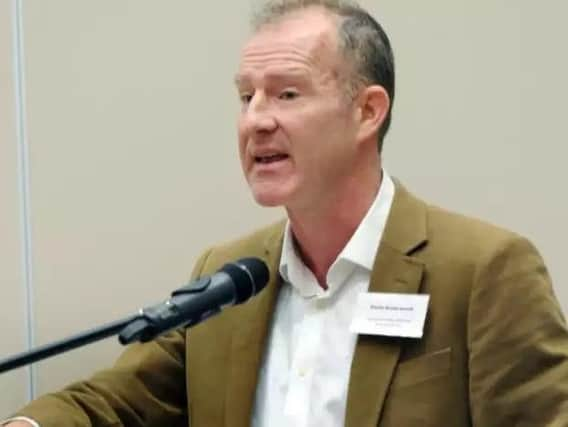Yorkshire Dales crisis is bigger than Foot and Mouth, says park boss


Authority boss David Butterworth, who was just four months in the job when the first outbreak of the disease was confirmed, said farmers showed incredible resilience to overcome what some predicted would be the death knell of agriculture in the Dales but that far longer lasting trends are undermining communities in a more fundamental way.
“Foot and Mouth was an extraordinarily difficult time for the area but what surprised me was how quickly farming, and the area generally, recovered from the effects. All the things that were expected, the collapse in land prices, people getting out, no new generations of farmers coming through, that didn’t happen,” said Mr Butterworth, who explained that he believes the resilience of Dales folk is no cliche but comes almost genetically to some.
Advertisement
Hide AdAdvertisement
Hide Ad“As strange as it sounds, you could almost take Foot and Mouth and put it in a two-year period. What we are looking at here is something that’s much bigger and more fundamental, much more difficult to sort.
“This really matters. It would be so easy for me to say let’s concentrate on growing more trees and building footpaths. If we don’t genuinely have a crack at this, even try, if we are not willing to stand up and argue the case for radical new ideas, we will have abdicated our responsibility.
The controversial proposal of a hike in council tax on the park’s second home owners forms part of the management plan. After a tax rise of at least five times was first mooted, a consensus is now being sought with the park’s eight tax-setting local councils to ask the Government what options are available for raising the tax on second homes.
Mr Butterworth described second homes as “the elephant in the room” and said the proposal was indicative of the thinking that local decision makers now have to adopt to fight for the survival of Dales communities.
Advertisement
Hide AdAdvertisement
Hide AdAlthough the Dales is “generally a conservative area”, he said there had been a “sea change” in attitudes to go beyond stemming community decline and start reversing it by attracting families into the area.
“There is a real push within the authority that although we would accept these are district and county issues we do need to be working with them and not wringing our hands on the sidelines, not just saying we are responsible for red squirrels and not people,” he said.
“We have talked a lot about what initiatives have been tried before and they just weren’t resolving the issues. It’s time for some radical discussions about the challenges facing our communities and what isn’t acceptable is for some people to try and close the discussion down before it even gets going, that is not going to help.
“Let’s take the opportunity to get into the government’s neck and tell them that we have problems, we need some help or at least need to have more powers to deal with it ourselves. I think the government is prepared to listen.
Advertisement
Hide AdAdvertisement
Hide Ad“We might only have 24,000 people in the whole park but this area matters, the issues we face need to be considered.”
The park chief acknowledged that young people will always be attracted away from the park but it was important to create the conditions that would give them the chance to return.
“As a parent you want your children to experience the real world and know what it means to live and study in our cities, and central government policy for some time has been to encourage people into higher education.
“The problem comes when they hit their late 20s and they are starting to settle down, the opportunity for them to move back here or not, it’s that lack of opportunity that’s the problem.”
He believes the new management plan can make a difference.
Advertisement
Hide AdAdvertisement
Hide Ad“If people are genuinely signed up to its delivery, it can have a significant impact. There is a genuine desire to improve the situation. The biggest issue for me is the future of upland farming because it drives everything in terms of the landscape, land management and the future of communities.”
Mr Butterworth was keen to stress that the park has the foundations to prosper in the future, that superfast broadband had become widespread in the western parts of the park due to the approach of smaller broadband operators.
“Broadband provision we genuinely think can make a big difference to giving the option of living and working at home in this area. This is one of the most affluent countries in the world. If there is a will to roll it out across the park it would be done,” he said.
“Socio-economically, the Dales is under major strain and stress and the next few years are going to be more important than the last 30. Ironically, at the same time, from the conservation and recreation side of things, what has been achieved has never been better.”